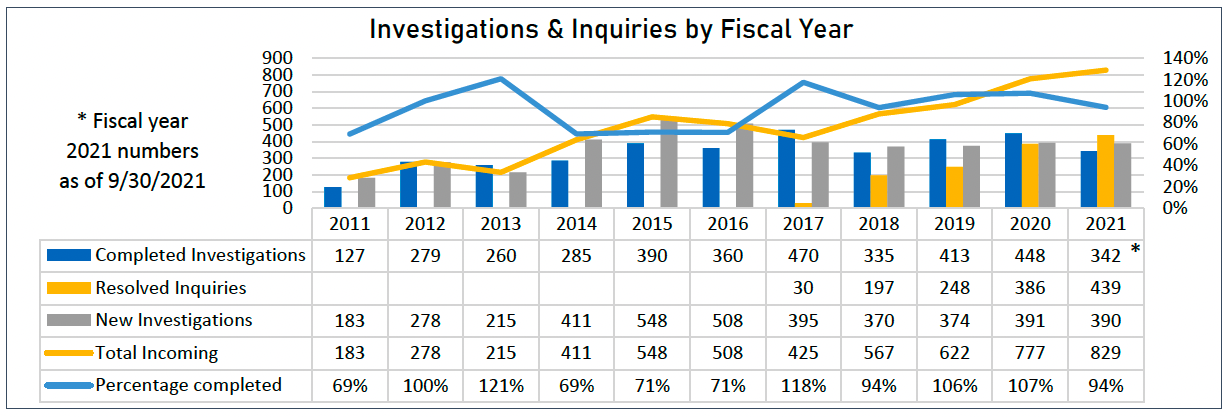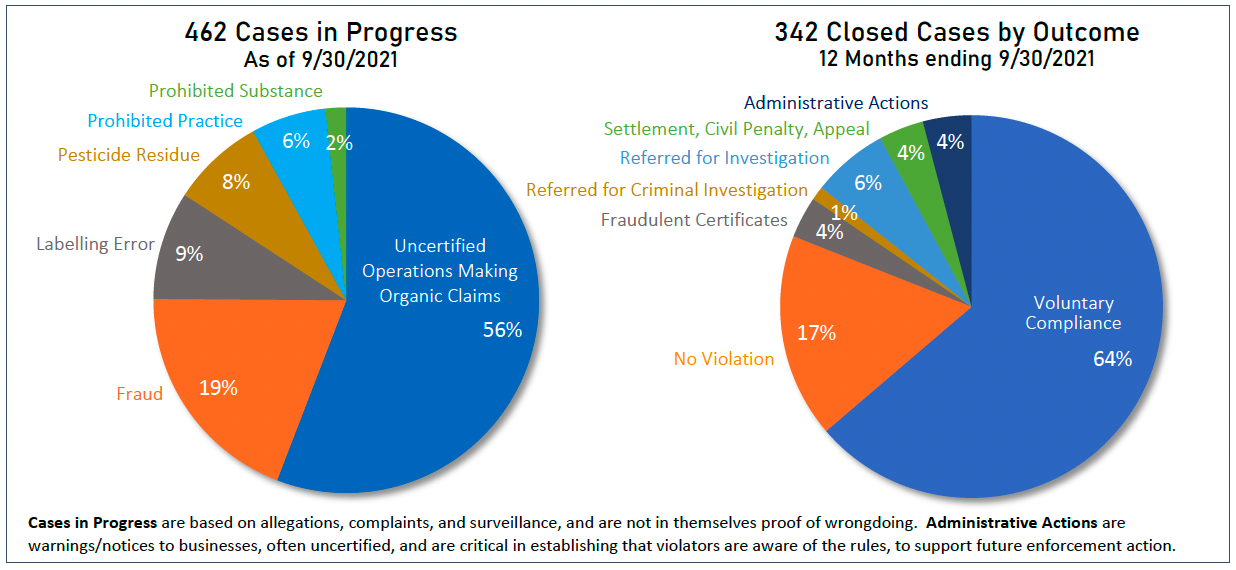
Oct 20, 2021
Stopped olive oil import shows US organic standard enforcement
The USDA’s National Organic Program recently highlighted an example of its increased efforts to fight fraud.

“NOP looks forward to the future of this and other partnerships with law enforcement agencies that help ensure a fair and competitive market for organic goods,” according to the newsletter.
The USDA also released quarterly statistics on its enforcement cases in progress.
A total 829 incoming cases for investigations and inquires – the highest it’s been going back at least 10 years – were received during the 2021 fiscal year.

Of its 462 enforcement cases in progress at the end of September, a little over half were classified as uncertified operations making organic claims. Nineteen percent were fraud cases, 9% were labeling errors, 8% were cases of pesticide residue, 6% were cases of prohibited practices and 2% were cases of a prohibited substance.

Of the 342 cases the NOP closed in the 12-month period ending September 30, 64% were resolved by voluntary compliance and in 17%, no violations were found.
The NOP is in the middle of a formal, lengthy process around Strengthening Organic Enforcement, a proposed rule that would guide its enforcement efforts.
Below is the NOP’s full statement on the Turkish olive oil incident:
One of the biggest factors when identifying risk in organic imports is timely access to good data. Through its partnership with U.S. Customs and Border Protection (CBP), NOP now has a seat in CBP’s Commercial Targeting and Analysis Center (CTAC), which makes it possible to monitor data behind millions of pounds of imports entering the United States. The multi-agency CTAC teams have developed risk-based approaches to combat fraud at U.S. ports of entry, leveraging NOP staff to test suspect grain shipments, and recently flagging a shipment of olive oil from Turkey for inspection. An investigation by the CTAC team determined the product to be non-compliant with USDA requirements for organic imports. The shipment, worth about $40,000, was stopped before it entered the U.S. organic market.
Raising the profile of enforcement cooperation and the visible presence CTAC participation provides at ports of entry serves as an increasing deterrent to others who might be contemplating violations of U.S. import laws. NOP looks forward to the future of this and other partnerships with law enforcement agencies that help ensure a fair and competitive market for organic goods.
Above file photo: Stephen Kloosterman









